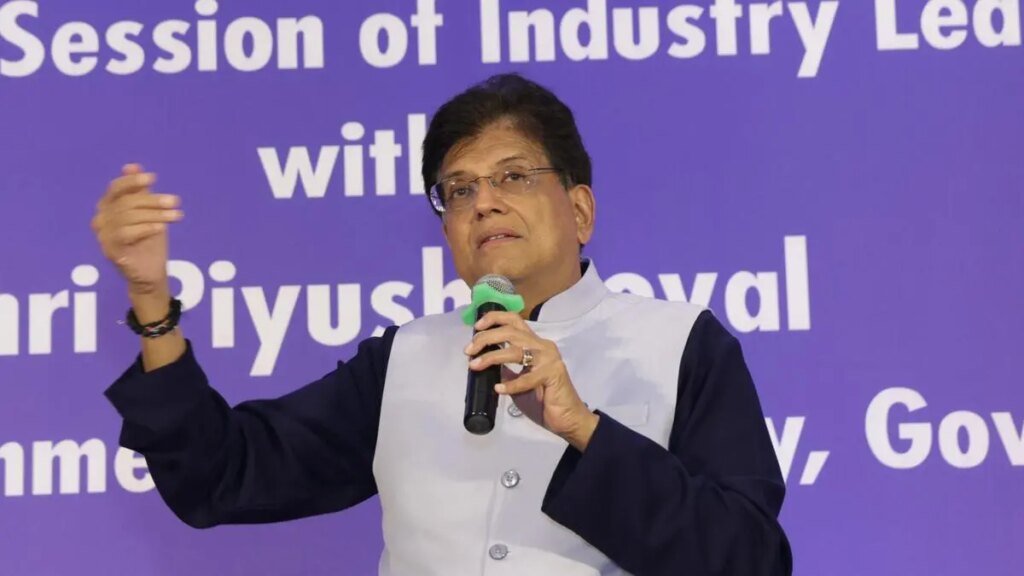Centre developing ‘co-operative stack’ to deliver govt schemes through PACS

On the lines of Agri Stack, the government is developing a “co-operative stack” by integrating various schemes in the sector which can be delivered through Primary Agricultural Credit Societies (PACS) ensuring greater benefits in rural areas.
Addressing a workshop on emerging technologies in PACS, organised by PHD Chamber of Commerce, Ashish Bhutani, Secretary in Cooperation Ministry, said: “The ecosystem (of PACS) has been changed. We have reinvented the system, and it was highly necessary to remove opacity and lack of transparency in PACS.” He was referring to the digitisation process of PACS, funded by the Centre and executed through the National Bank for Agriculture and Rural Development (Nabard).
This co-operative stack initiative aims to transform the rural institutional landscape by leveraging PACS as the primary vehicle for delivering government benefits, marking a significant shift from the current fragmented approach, where different schemes operate through separate channels.
The technology integration within the co-operative stack includes AI-driven solutions such as automated weather advisories that can help farmers make informed decisions about crop management and agricultural practices.
Intent to migrate
“The intent now is to migrate to a co-operative stack, similar to agristack initiated by the Agriculture Ministry,” he said. Under the Agri Stack initiative, the government is trying to build up a robust database of all farmers where each of them will have a unique identity card through which it will be easy to find out every detail, such as land records, crop pattern, fertilizer usage, whether benefits of government schemes availed or not and even their credit worthiness.
Bhutani also said the digitisation has already begun transforming operations, enhancing efficiency and accountability of PACS. Computerisation of 63,000 PACS are in the advanced stage of completion, he said, adding that there are about 1.08 lakh PACS in the country having 13 crore members. Computerisation of another 17,000 PACS are also simultaneously going-on.
Though, urban cooperative banks (UCBs) and regional cooperative banks (RCBs) were computerised, the same was not done in case of PACS, earlier and it got pace after creation of a separate ministry of co-operation in 2021.
The Reserve Bank of India was not allowing PACS to undertake more activities due to lack of transparency and technology adoption.
Emphasising the need for institutional consolidation within the co-operative stack, he said there is no point creating silo institutions in individual areas when PACS are institutions backed by legislation. “Why not strengthen the existing PACS than keep on adding a new system every day,” he asked and added the digitisation programme is a comprehensive initiative to help integrate all schemes with PACS.
Complaints against PACs
Many of the government schemes in rural areas are currently channelised though Self-Help Groups, those are operating under circulars and notifications without formal legal backing.
“Many of the PACS are involved in distribution of fertilizers and there are several complaints against them. Similarly, many of the SHGs are into credit disbursal or chit fund type activities. On the other hand, many PACS and SHGs are also doing good job whether it is grain procurement, drone services or milk procurement. Now farmer producer organisations (FPOs) are also actively into business activities,” a former head of a co-operative institution said.
Delivery of government schemes only through PACS may not be a good idea and with limited business opportunity in a village, there has to be a fine balance maintained among PACS, SHGs and FPOs, the former official said.
He said SHGs are more effective as they are flexible and not burdened by government rules and regulations, whereas PACS are over-regulated through the registrar of co-operative societies.
An inter-ministerial committee of secretaries is actively working on establishing a single centre for dispensing all government scheme benefits in rural areas instead of the current system of multiple institutions handling different programmes. In this case, the panel has identified PACS as uniquely positioned to serve as the backbone of this co-operative stack.
“The technology is the way forward to link all schemes seamlessly through PACS. It is all the more reason to ensure PACS embrace technologies as soon as possible,” Bhutani said.
Published on July 1, 2025




